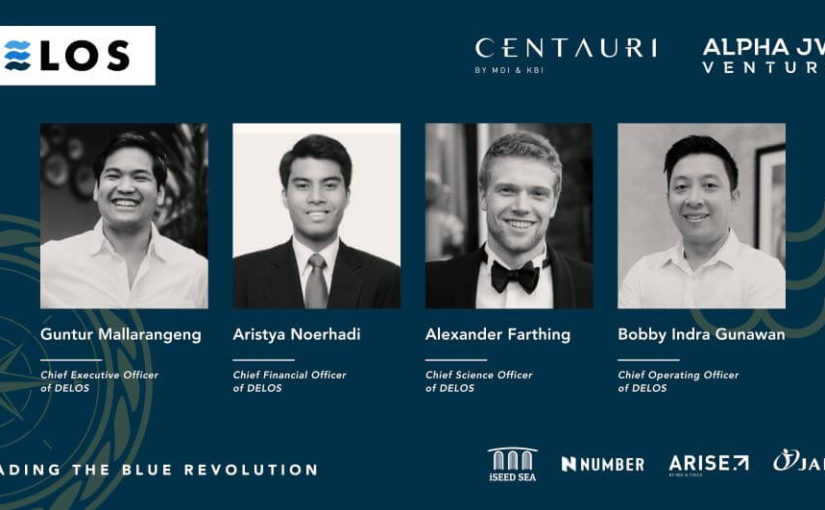Post securing early-stage funding led by the Arise Fund, aquatech startup DELOS announced an additional investment of $8 million, equivalent to 115 billion Rupiah. This round was led by the Centauri Fund and Alpha JWC Ventures. Both Centauri and Arise are funds under MDI Ventures management.
Other investors involved in this funding are Number Capital, Arise, iSeed SEA, Irvan Kolonas, as well as Alto Partners Multi-Family Office, Mahanusa Capital, Kopi Kenangan’s Founder, James Prananto, and a number of advanced strategic investors.
The company plans to use the funds to accelerate the on-boarding process of its farm-based clients. In addition, they continue to build and scale-up its main products AquaHero, AquaLink, and AquaBank to accelerate the growth of Indonesian aquaculture.
“We want to encourage Indonesia to realize and take advantage of its vast marine potential, setting it as major and sustainable national economic driver in the near future,” said DELOS Co-founder Guntur Mallarangeng.
Within months of operations following the early-stage funding round, DELOS has been working on developing its flagship product line. AquaHero, which is a complete agricultural productivity system combining scientific, technological and operational expertise was developed to increase agricultural yields. AquaHero products use high-end data collection methods and biological models to predict and reduce crop risk. This model will be applied to thousands of shrimp ponds in the DELOS ecosystem throughout Indonesia.
“DELOS comes with real, data-driven solutions to the everyday problems faced by shrimp farmers, and early traction has proven its effectiveness in optimizing farm operations and significantly growing output. With the expertise and network of its founders, we are confident DELOS can lead the aquaculture revolution in Indonesia,” Alpha JWC Ventures’ Partner, Eko Kurniadi said.
Meanwhile, Centauri Fund’s Managing Partner, Kenneth Li, said that agriculture is one of Indonesia’s grassroots industries that contributes significantly to national GDP. In this regard, the shrimp industry in Indonesia is also one of the largest in the world and the largest contributor to the Indonesian fishery industry as a whole.
“DELOS is capable of producing a staggering output yield of 2-3x the industry average. It also capable to solve this problem by implementing modern and standardized production methods and providing scalable supply chain solutions,” he added.
Business Growth
Since November 2021, the company has been actively on-boarding 100 hectares of intensive and super intensive shrimp ponds, with a backlog demand of more than 600 hectares in the company’s pipeline. This year, the company will continue to strengthen and expand AquaHero’s product range, accuracy, features and clients, by increasing farm productivity and profitability, thereby adding value to the industry. The company is targeting around 200 hectares to be managed this year.
DELOS claims to have helped its clients multiply their results through an app from AquaHero. This has resulted in the client base’s agricultural output continuing to outperform the Indonesian shrimp farming industry, producing an average of 10-15 tons/ha/cycle.
Supporting DELOS’ long-term goals, the company later established the DELOS Maritime Institute (DMI) in Yogyakarta. The Institute will become a training center for the development of specialized aquaculture talent, with a world-class curriculum and on-site practical training, to cultivate a new generation of farm managers, technicians, lab assistants and field operators. In addition, this activity will also support research and development of the latest technology in cultivation technology, such as: early detection and prevention of disease and livestock supporting infrastructure.
“The feedback of DELOS in the aquaculture industry has been very positive, with client acquisitions beyond the team’s ability to get into the farm,” Guntur said.
–
Original article is in Indonesian, translated by Kristin Siagian
